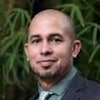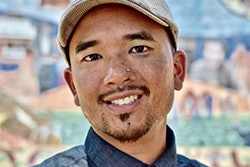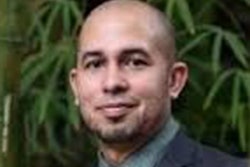As director of the Business Enterprise Law Clinic and assistant professor of law at The John Marshall Law School (JMLS), Renee C. Hatcher is redefining what it means to bring about sustainable economic justice through community development law.
The Gary, Indiana native recalls observing how the steel town’s nearly 30,000 jobs dwindled down to less than 3,000 after globalization and automation occurred, sparking her interest in thinking about how these different processes lead communities — particularly low-income and communities of color — to create innovative economic approaches that meet their material needs.
This framework of Hatcher’s scholarship and legal practice operates under the solidarity economy theory. In many ways, the work she does elevates “the good news” and not “just the resist work,” she adds.
This can look like people organizing around worker cooperatives, building innovative enterprises or using bartering services or time-banking, for example, to address worker exploitation.
“I like to say that a lot of it is really inspiring and is good news in terms of how people are using what they have in many cases because they have been neglected by the formal economy or because they’ve been left out of mainstream economic opportunities,” Hatcher says. “They are creating new kinds of economic arrangements that actually work for them and put them in a better position.”
Darby Dickerson, dean and professor of law at JMLS, says Hatcher’s Business Enterprise Law Clinic is about empowerment.
Hatcher is “a great listener and you can tell that she seriously considers all perspectives,” she adds. Students gravitate to her clinic, where she teaches doctrine about transactional practices and skills and values around representing clients, the dean says.
Hatcher emphasizes in the clinic’s first few weeks the importance for students to consider the context in which they are working in, whether they are working with a community development organization on the Southside of Chicago or serving as in-house counsel for a Fortune 500 company.
“The context for us has to start with not just this current moment, but the historical development of a city like Chicago or of a city like Baltimore in understanding the different policies that were in place that produced, for example, the kind of hyper-segregation that we see now,” she says.
“We talk a lot about red-lining. We talk a lot about access to capital,” Hatcher adds. “We talk a lot about the different ways in which minority businesses have been left out of meaningful opportunities around contracting.”
Students conduct the initial client interviews and legal research around client issues; help clients understand different regulations they need to know or assist with drafting contracts, agreements, and negotiations; and they explore different approaches to client-centered lawyering.
Hatcher is relatively new to academia. After receiving her J.D., she was previously a staff attorney for the Chicago Lawyer’s Committee for Civil Rights Under Law specializing in community development law, nonprofit law, employment law and small business matters.
Around the time of Mike Brown’s death and ensuing Ferguson protests, she began a post-doctoral fellowship at the University of Texas at Austin’s Institute for Urban Policy Research and Analysis.
After her post-doc, she began teaching in the Community Development Clinic at the University of Baltimore School of Law in 2015. Arriving shortly after the death of Freddie Gray, she found herself engaging in important community conversations that reimagined the community response to the factors driving economic state violence and police violence, she says.
Now, dean Dickerson says she wants to see Hatcher secure tenure at JMLS and will continue to support her as more people look to the legal practitioner as an expert in her field of practice.
One goal she has for students is for them to develop a practice of reflection and understanding that enables them to learn from their lawyering while also reflecting on their experiences to become more effective lawyers, she says. In the same way, it is a goal she actively works toward.
“What I hope to do … is push the thinking around community economic development, around community economic development lawyering, and push people to think not only how do we serve this one client, but what’s the larger impact and also what’s the larger goal,” Hatcher says. “How can we be a part of transforming neighborhoods and communities and local economies in such a way that people’s lives actually improve.”
Title: Director of the Business Enterprise Law Clinic and Assistant Professor of Law, The John Marshall Law School
Tenured: No
Education: J.D., public interest law, New York University School of Law, 2011; B.A., political science, Indiana University, 2008
Age: 32
Career mentors: Jaime Alison Lee, University of Baltimore School of Law; Audrey McFarlane, University of Baltimore School of Law
Words to live by: “What’s guided me and helped me along the way is making sure that I’m reflecting upon where I’m currently at and where I want to get to at each step of my career, and then also wanting to find a place where I feel like I can actually add value and do good work.”















